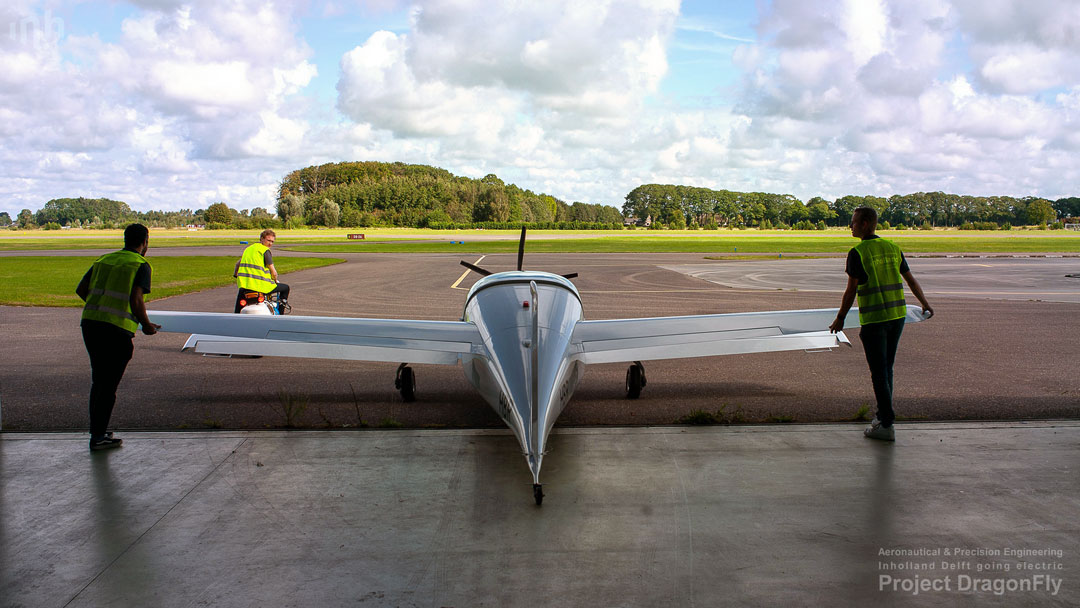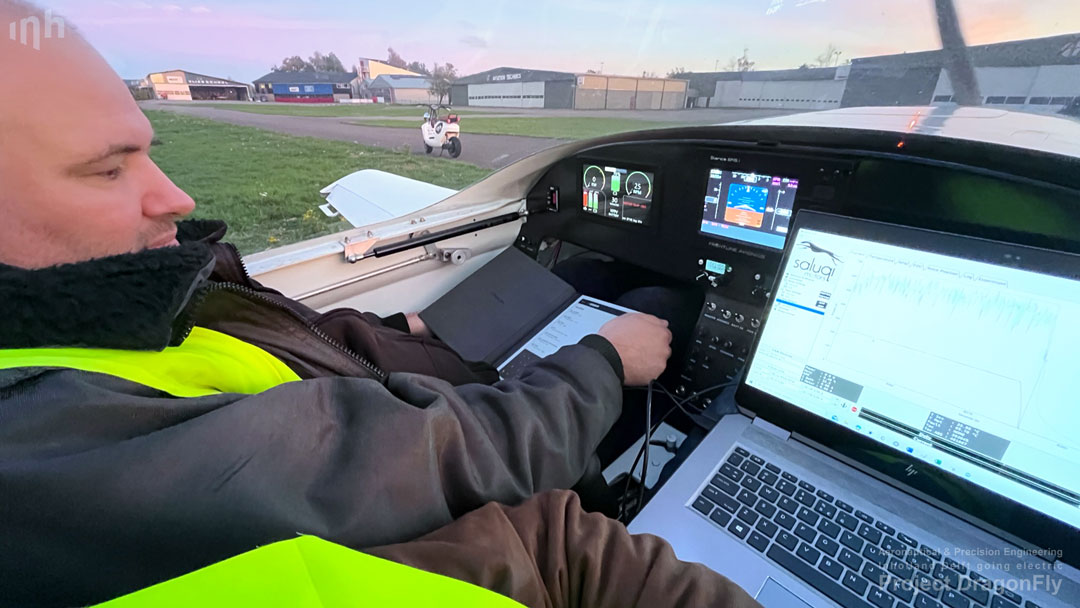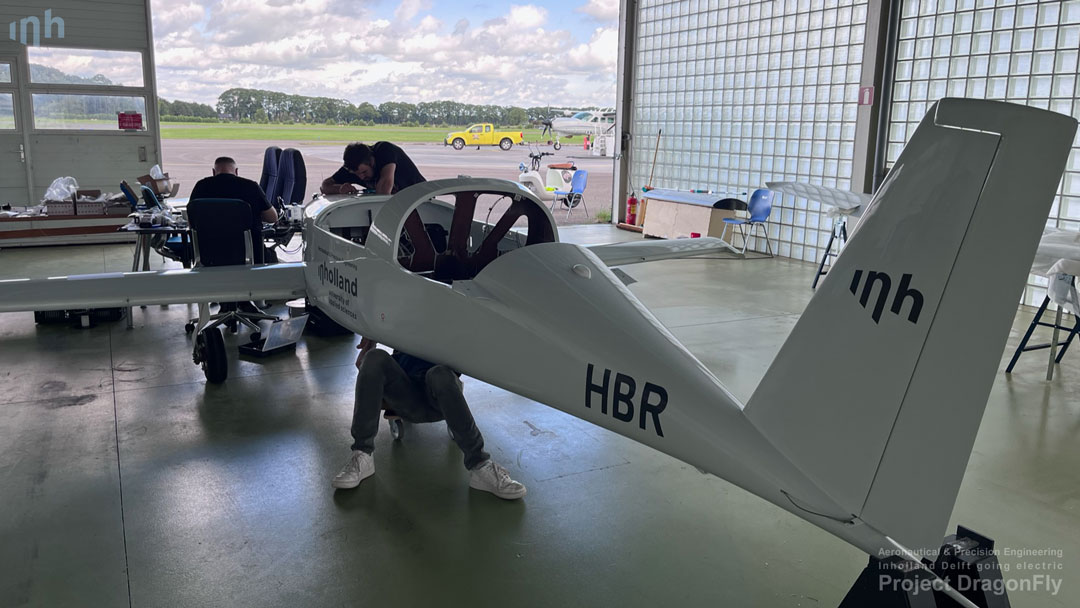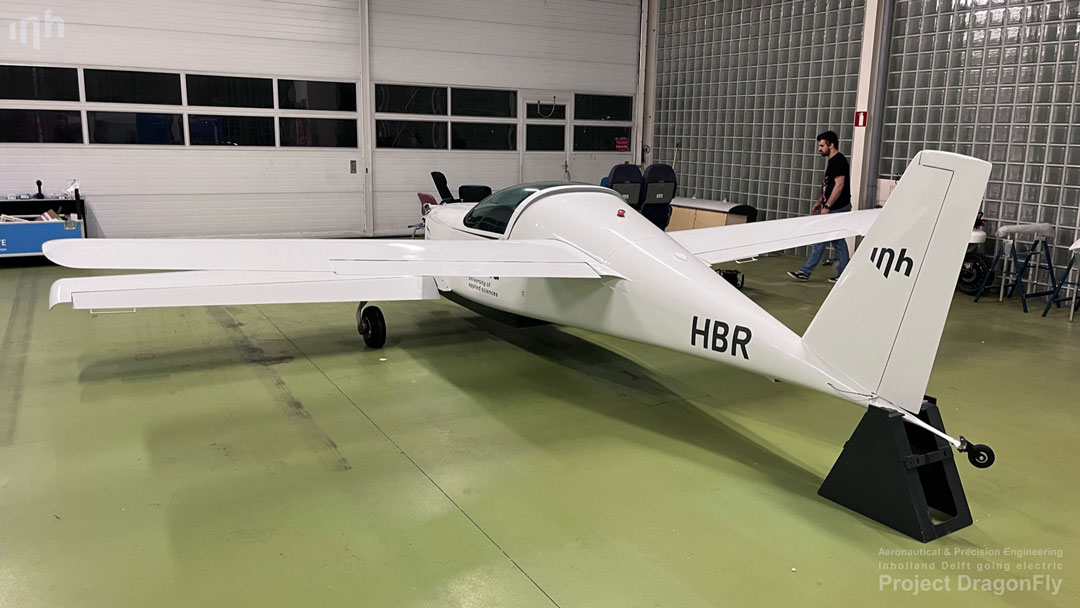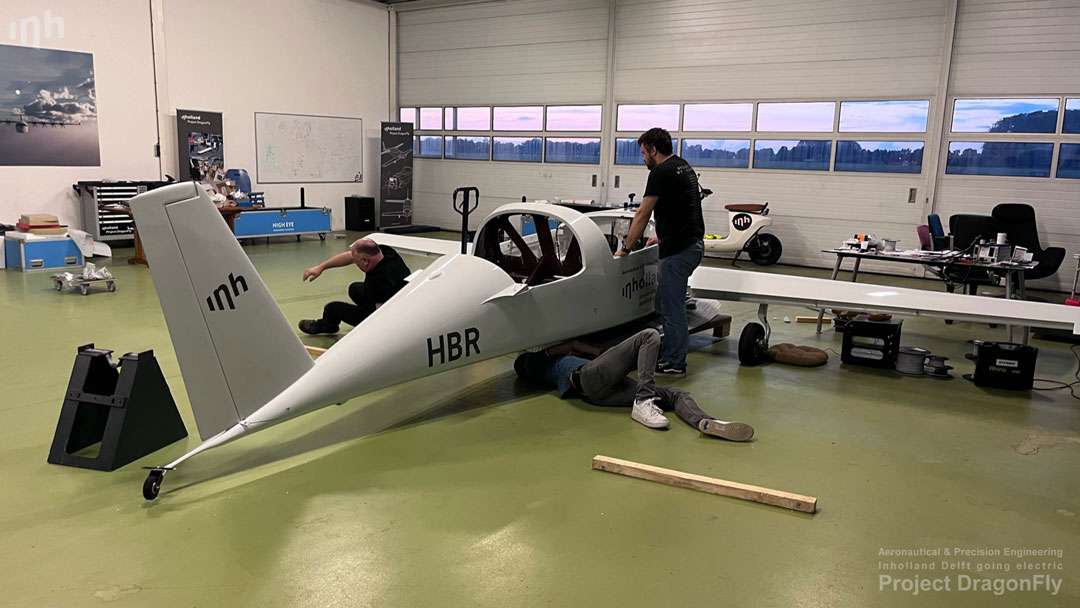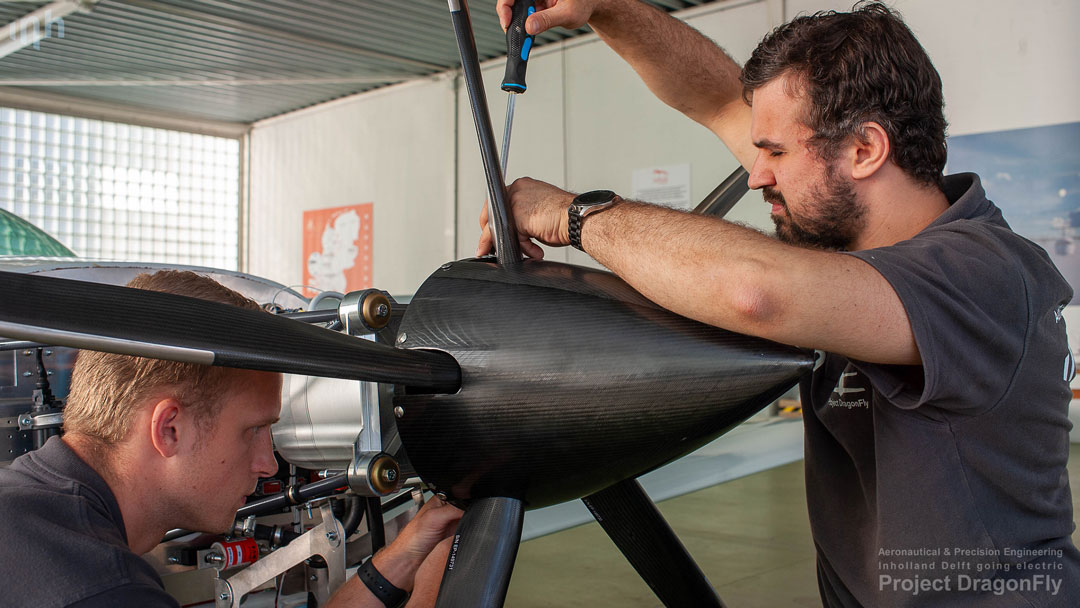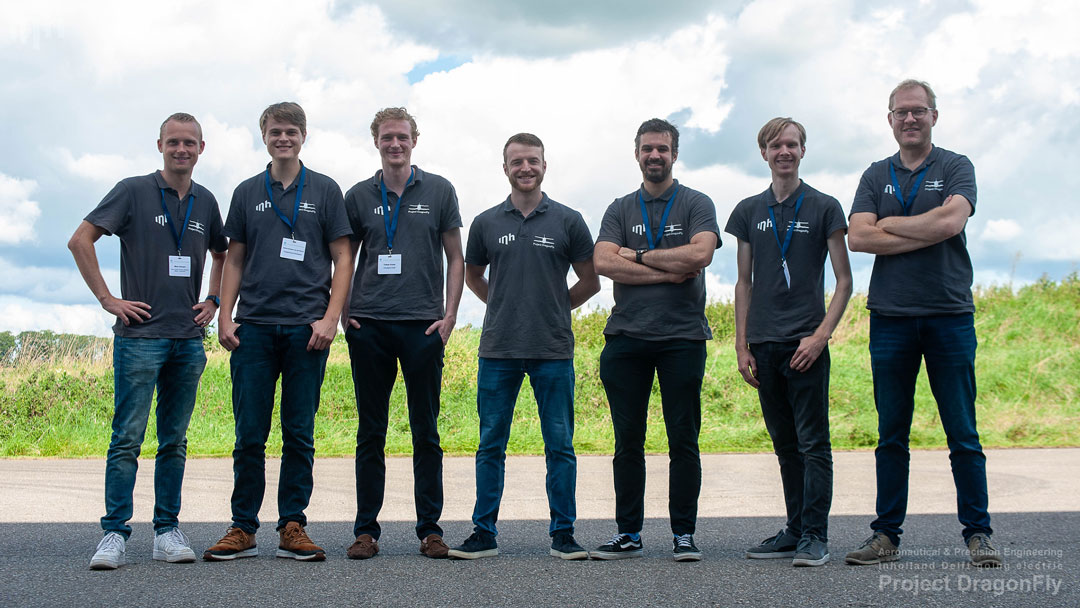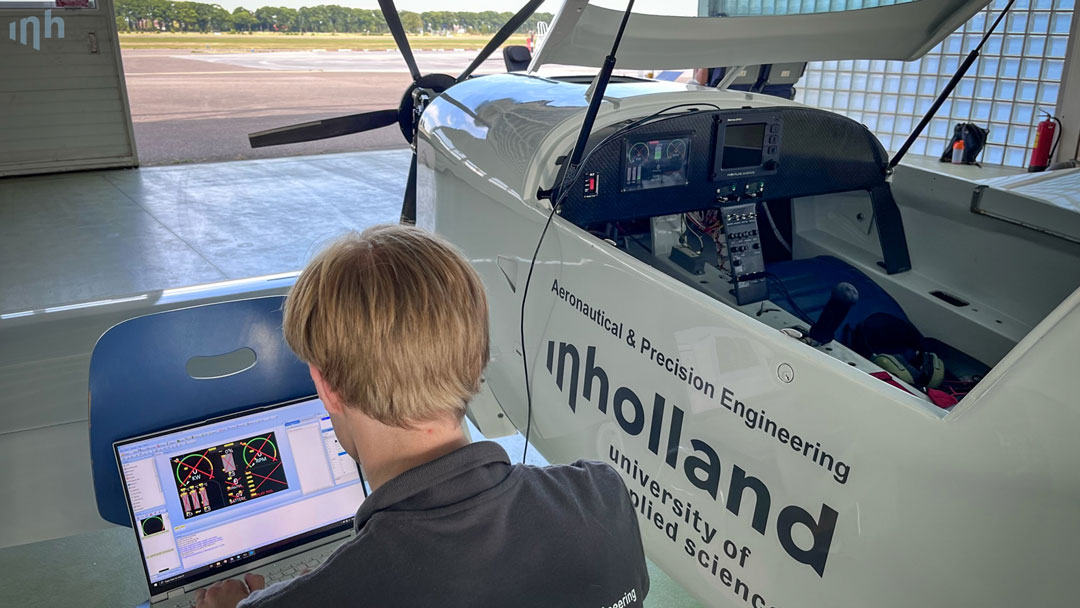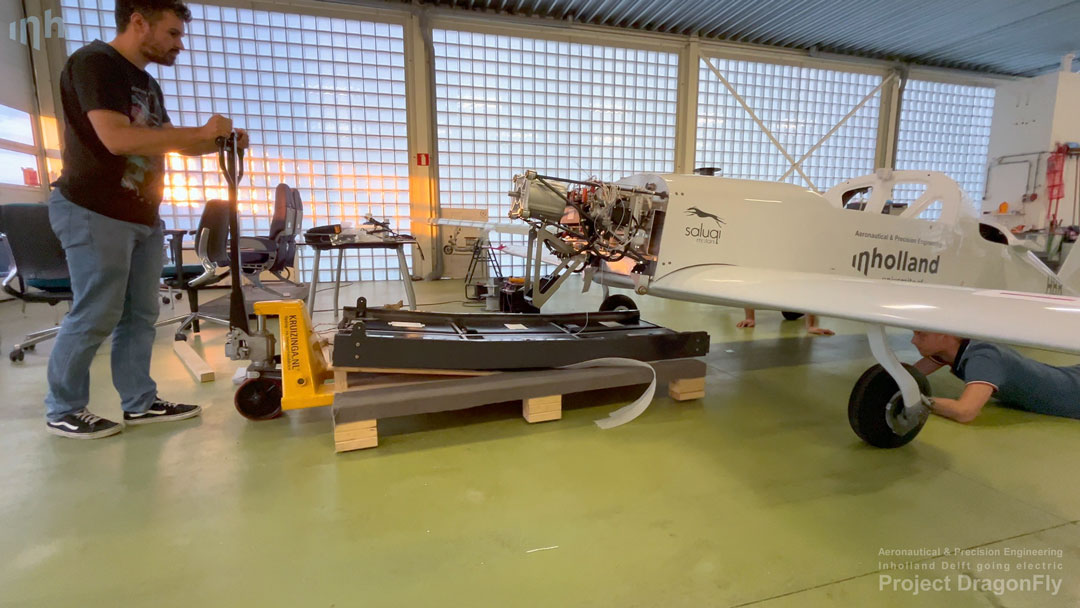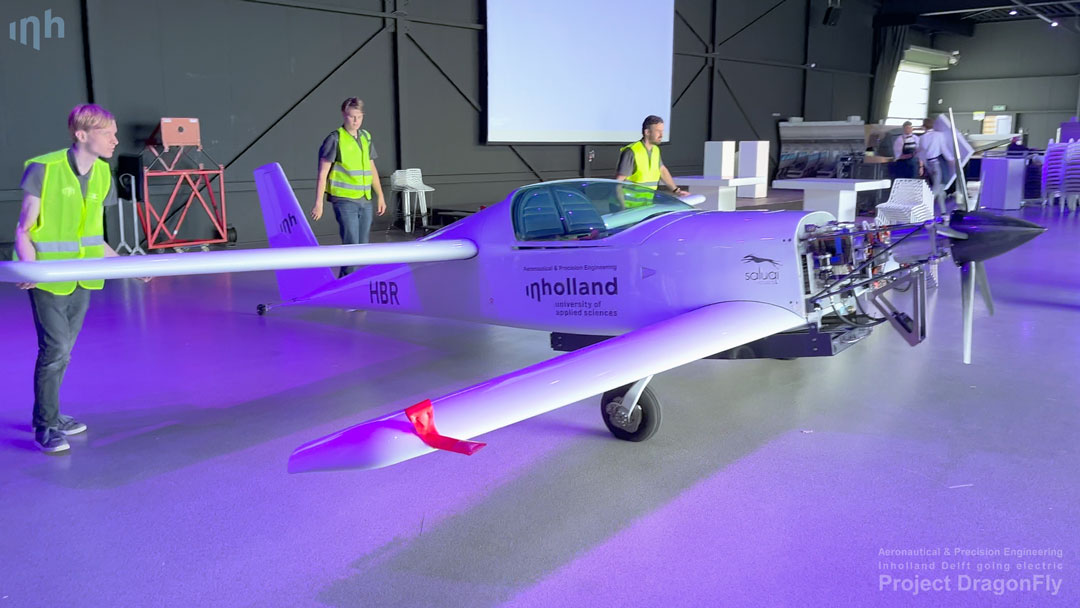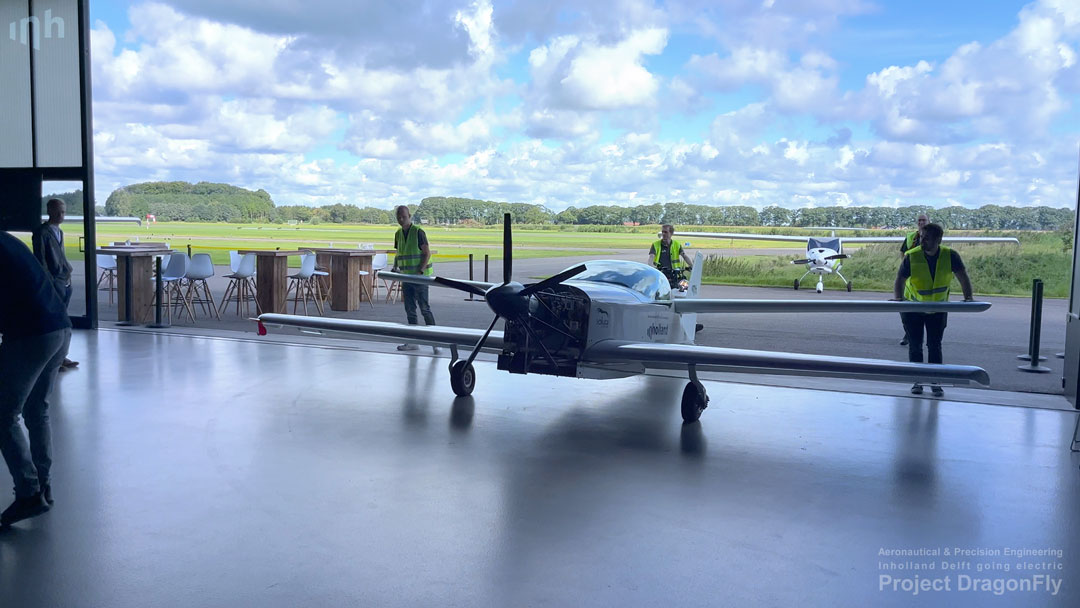Delft, Netherlands – December 14, 2023
Project DragonFly, a pioneering initiative led by the faculty of Aeronautical & Precision Engineering at Inholland University of Applied Sciences in Delft in collaboration with the aerospace industry, aimed at converting a conventional aircraft to an electric retrofit, faces a significant delay in its flight test program.
Initially projected for takeoff by the end of 2023, the project encountered an unexpected setback during its powertrain test program. The origin of the delay lies in an electrical component in the powertrain that failed to meet specifications, resulting in a fatal error in the electric storage system. This system, consisting of state-of-the-art lithium-ion batteries, now demands a major redesign and potentially the adoption of new batteries.
The complexity of the setback is magnified by the fact that the original battery supplier, due to End of Life of the original modules, is unable to supply replacement modules. The project team is now faced with the daunting task of identifying a new battery supplier and subsequently redesigning the entire battery housing. This unforeseen challenge adds an additional layer of complexity to an already difficult phase of the project.
Despite this setback, the Dragonfly team remains resolute and highly committed to being the trailblazers in developing an electric aircraft in the Netherlands. The setback serves as a testament to the challenges inherent in pioneering technological advancements, emphasizing the resilience required to overcome unexpected obstacles.
Arnold Koetje, the driving force behind the electric Dragonfly, expressed confidence in the team’s ability to navigate through this difficult phase. “While setbacks are never easy, they are an integral part of innovation. Our commitment to revolutionizing aerospace through sustainable technologies remains unwavering. We are actively exploring new partnerships with battery suppliers and are prepared to adapt our design to ensure the success of the electric Dragonfly.”
The setback, although disappointing, underscores the importance of collaborative efforts between academia and industry in pushing the boundaries of technological innovation. As the team works diligently to overcome this obstacle, the anticipation for the success of Project Dragonfly only intensifies within the aerospace community and beyond.


